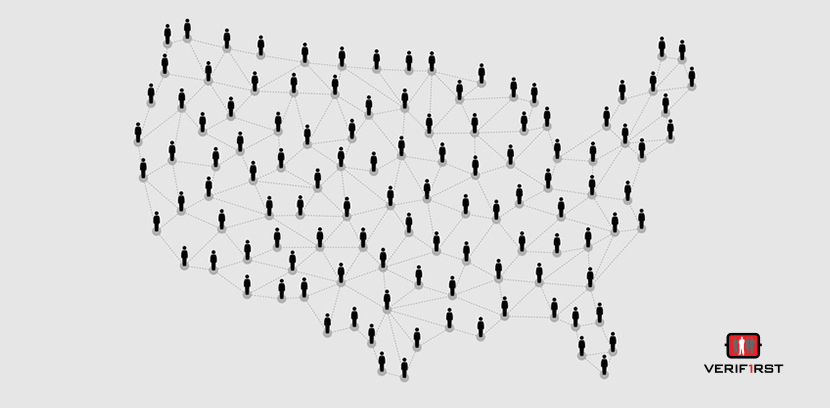A Look Ahead at Employment Laws in 2020

Hiring laws and those that pertain to employment background screening are passed fairly regularly. Because it can be challenging for employers to keep up, this blog publishes yearly news as well as weekly updates to help keep readers informed. Staying in compliance with these new laws will help mitigate risk to your business.
Here are important updates to employment and hiring laws expected in 2020.
Employment Laws in 2020
Salary and Credit History Bans
Several more states are expected to consider salary history bans for job seekers. These laws are put into place to end pay discrimination and increasing wage gaps. New Jersey's Diane B. Allen Equal Pay Act, for example, will go into effect on 1/1/2020 and seeks to resolve pay gaps for applicants who are paid less due to gender or race. California and New York have already passed similar laws banning the inquiry of salary history.
Ten states and Washington, D.C. have also implemented restrictions on credit history checks. California, Colorado, Connecticut, Hawaii, Illinois, Maryland, Nevada, Oregon, Vermont, and Washington have passed laws restricting when employers can review an applicant's credit history.
Employers are wise to review employment applications for questions about credit or salary history. If the job requires handling money, working in fields that require credit checks or other financial data, then a credit history should be applicable.
Can Employers Look at a Job Candidate's Credit Report?
Independent Contractor Rights
The New York State Human Rights Law has added an amendment to protect independent contractors. When it goes into effect on January 1, 2020, employers are prohibited from discriminating independent contractors for age, race, color, sexual orientation, gender, national origin, disability and more. It also protects them from retaliation if they've spoken up about discrimination or harassment at work. Just as New York lead the charge on freelance workers getting their invoices paid on time, other states may be making more changes due to the gig economy as well.
New York employers must be aware of the legislation and how it affects independent contractors. For instance, just as employees are protected from discrimination based on criminal history, contractors are afforded the same protections.
Ban the Box/Criminal History
"Ban the box" laws continue to sweep the country as they have in previous years. Banning the box prohibits employers from asking if an applicant has committed a crime so that those with previous convictions have a fair chance at landing a job. Ban the box isn't a federal law as of yet but states and municipalities have passed laws that apply to certain employers and employers can expect more of the same.
Colorado passed statewide legislation for employers with over 11 employees that took effect in September 2019. Employers with less than 11 have until 2021 to comply. New Mexico amended its Criminal Offender Employment Act expanding their ban the box law to private employers. New Mexico's new Criminal Record Expungement Act goes into effect on January 1, 2020 and allows individuals with certain arrest and criminal records to petition the courts for expungement.
Which Criminal Background Check is Best for your Company?
Social Media
According to the Society for Human Resource Management (SHRM), social media background checks are on the rise as more recruiters search online for candidates. There is still the potential of discrimination or false positives when hiring managers choose to do these searches on their own. It's far too easy to create fake accounts or other identities online. At VeriFirst, we still don't recommend using social media to determine an applicant's eligibility for employment as there are far too many risks involved. If recruiters are using social media to locate new candidates, the information should be limited as far more trustworthy screens are done.
Marijuana Use and Drug Screening
While marijuana continues to be illegal at the federal level, more states have legalized marijuana use for medical reasons or recreation. VeriFirst has advised that employers still have the right to fire an employee who tests positive for a marijuana, a Schedule 1 substance under the Controlled Substances Act. A recent New Jersey court case, however, may set precedent to turn things around.
In the case, an employee was terminated after testing positive for medical marijuana use. Even though some states have legalized medical marijuana use, the prevailing interpretation of their laws revealed that employers did not have to provide accommodation. The appellate court system in New Jersey interpreted it differently, stating that terminating an employee for medical marijuana use could be discrimination based on disability. The New Jersey governor also signed a new law, Jake Honig Compassionate Use Medical Cannabis Act, which expands employment protections for those using medical marijuana and defines steps for an employer if an employee tests positive for medical marijuana. This case and new law are interesting and could see a shift in employee rights in the coming year.
Stay tuned! Subscribe to this Blog for updates.
Here at VeriFirst, we do our best to keep our clients and readers informed about legislation related to hiring and background checks. Obviously, it behooves employers and hiring managers to stay tuned to new laws that may affect their procedures for hiring. There are a multitude of state and local news outlets to help keep you informed.
You are also invited to subscribe to our blog to get Instant, Daily, Weekly or Monthly updates as we typically post every week. Thanks for reading and let us know how we can help in 2020!
Share this
You May Also Like
These Related Stories

New State Employment Laws for 2018

Hiring Trends and Employment Law in 2019
